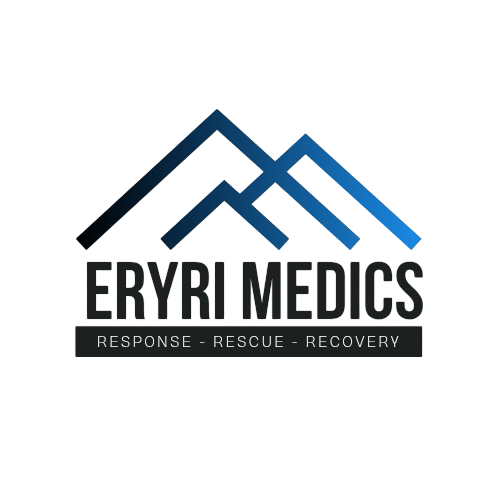Rope Rescue in the UK: Techniques, Teams & Terrain
From the jagged cliffs of the Lake District to the steep gullies of the Cairngorms — rope rescue plays a vital role in ensuring safety during outdoor adventures, technical expeditions, and remote medical emergencies.
Event organisers planning challenges in exposed terrain, as well as FREC-qualified medics pursuing Mountain Medic roles, must have a solid understanding of rope rescue principles to operate safely and effectively in the UK’s diverse and demanding environments.
"Crib Goch, on average, sees 1–3 fatalities per year.”
What Is Rope Rescue?
Rope rescue is a specialised technique used to safely access, stabilise, and extract individuals from hazardous or inaccessible locations. This includes cliffs, ravines, quarries, steep forested slopes, and remote rock faces.
It involves:
Technical rope systems (anchors, pulleys, belays)
Patient packaging and stretcher handling
Vertical access and extraction
Team communication in challenging terrain
Rope Rescue Techniques Used in the UK
UK rope rescue specialists — including Mountain Rescue England and Wales (MREW), Scottish Mountain Rescue, and industrial rope access teams — use several proven techniques:
Lowering & Raising Systems
Commonly used to descend to or lift a casualty from a ledge, scree slope, or crag.
Haul Systems
Mechanical advantage systems (e.g., 3:1 or 5:1) using pulleys to reduce effort when raising casualties.
Tensioned Guiding Lines
Used to move a stretcher horizontally across a ravine or unstable slope while maintaining elevation and control.
Edge Protection & Anchor Management
Vital in areas like Snowdonia or the Peak District where sharp edges and fragile rock can compromise rope safety.
Who Performs Rope Rescue in the UK?
Mountain Rescue Teams
Voluntary organisations equipped for technical rope work, often operating in national parks and upland areas.
Fire & Rescue Rope Teams
Urban search and rescue (USAR) units and fire services trained for vertical rescue in confined spaces, cliffs, or industrial zones.
Event Medical & Technical Teams
Specialist providers like Eryri Medics work alongside rope technicians during high-risk outdoor events, ultra-marathons, and expeditions.
"Understanding Redundancy: Twin Ropes and Load Sharing"
Common Locations for Rope Rescue in the UK
Cairngorms National Park – winter rescues, steep corries
Snowdonia (Eryri) – Crib Goch, Tryfan, and remote ridgelines
Lake District – Sharp Edge, Striding Edge, and Langdale crags
Coastal cliffs – Pembrokeshire, Cornwall, and Dorset (e.g., sea cliff climbing rescues)
Quarries and mines – South Wales Valleys and North Pennines
Rope Rescue Training & Standards
Many teams follow:
MREW Rope Rescue Guidelines
ROCO or NFPA (US) rope standards for technical rescue
IRATA (Industrial Rope Access Trade Association) training for rope access professionals
REC & FREC-qualified medics may receive vertical access and patient packaging training in outdoor emergency care courses
When Is Rope Rescue Needed at Events?
If you're planning:
Mountain races with exposed ridgelines
Climbing festivals
Multi-day hiking or caving expeditions
Outdoor events in technical terrain
...you should consider incorporating rope rescue capability in your medical or safety plan.
Having technical medics trained in rope systems or working in partnership with local rescue organisations ensures rapid response and casualty extraction in high-risk locations.
Ascending Safely: Rope Access on Steep Terrain…
How Eryri Medics Integrates Rope Rescue
At Eryri Medics, our mountain medics often collaborate with rope access professionals and mountain rescue volunteers when an incident involves:
Steep ground evacuations
Cliffside casualties
Remote stretcher carries across hazardous terrain
All our medics are FREC-certified, and many are also Mountain Leaders trained in rope safety principles, stretcher rigging, and wilderness evacuation planning.
Final Thoughts
Rope rescue is not just a technical skill — it’s a lifesaving necessity in the UK's diverse terrain. Whether you're an event organiser, expedition leader, or outdoor safety provider, incorporating rope rescue awareness and planning into your risk management strategy is critical.
Need rope-trained medics or mountain rescue-informed support for your UK-based event?
Contact Eryri Medics today to build a safety plan tailored to your terrain.



